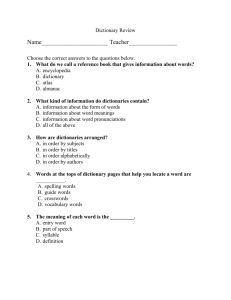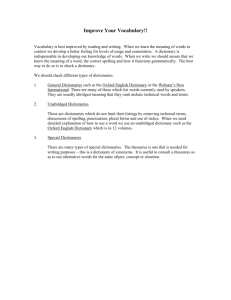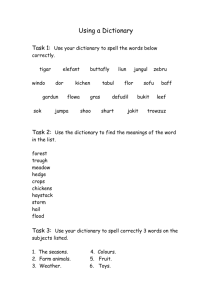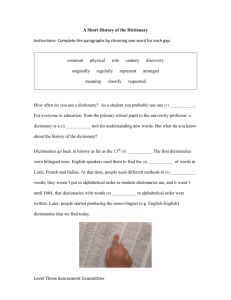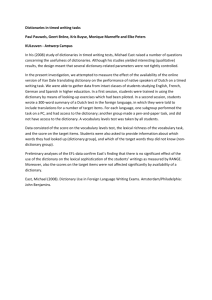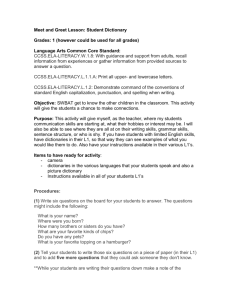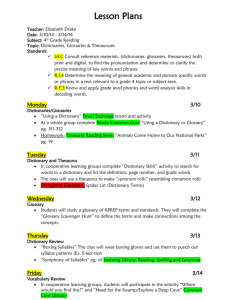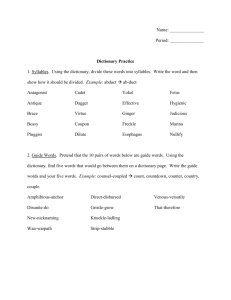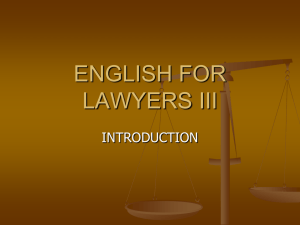course aims
advertisement
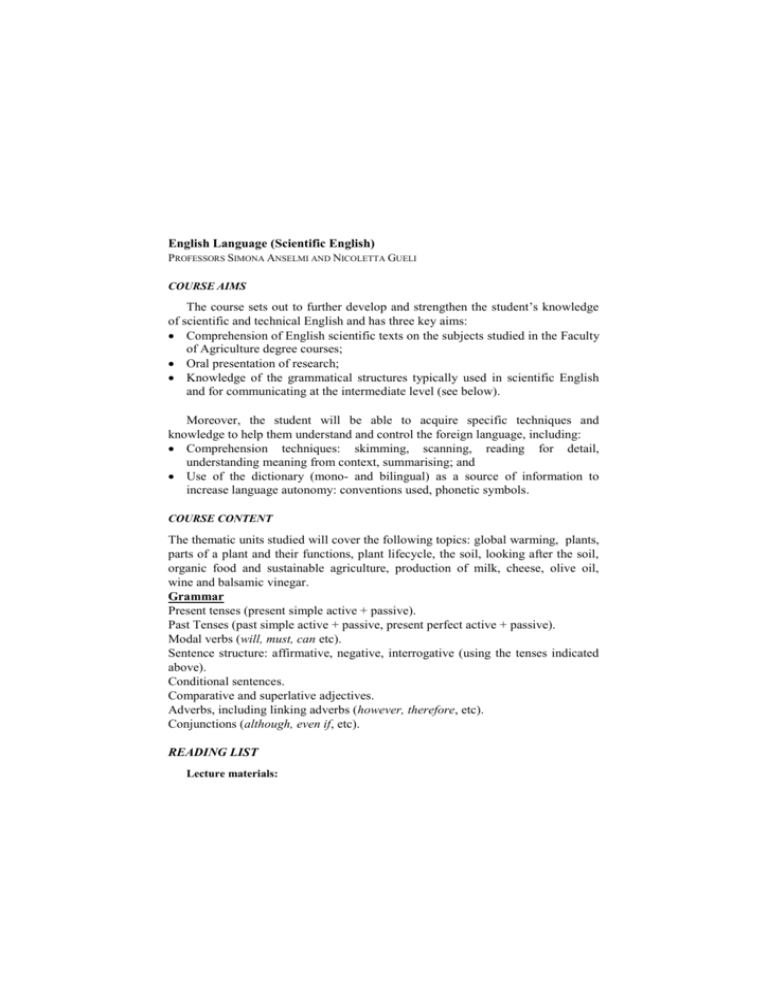
English Language (Scientific English) PROFESSORS SIMONA ANSELMI AND NICOLETTA GUELI COURSE AIMS The course sets out to further develop and strengthen the student’s knowledge of scientific and technical English and has three key aims: Comprehension of English scientific texts on the subjects studied in the Faculty of Agriculture degree courses; Oral presentation of research; Knowledge of the grammatical structures typically used in scientific English and for communicating at the intermediate level (see below). Moreover, the student will be able to acquire specific techniques and knowledge to help them understand and control the foreign language, including: Comprehension techniques: skimming, scanning, reading for detail, understanding meaning from context, summarising; and Use of the dictionary (mono- and bilingual) as a source of information to increase language autonomy: conventions used, phonetic symbols. COURSE CONTENT The thematic units studied will cover the following topics: global warming, plants, parts of a plant and their functions, plant lifecycle, the soil, looking after the soil, organic food and sustainable agriculture, production of milk, cheese, olive oil, wine and balsamic vinegar. Grammar Present tenses (present simple active + passive). Past Tenses (past simple active + passive, present perfect active + passive). Modal verbs (will, must, can etc). Sentence structure: affirmative, negative, interrogative (using the tenses indicated above). Conditional sentences. Comparative and superlative adjectives. Adverbs, including linking adverbs (however, therefore, etc). Conjunctions (although, even if, etc). READING LIST Lecture materials: Course pack: ‘Scientific English’ (available from the university bookstore). Course pack: ‘Pronunciation + Dictionary Use’ (obtainable from the reprographics department). Scientific articles and texts handed out in class. Recommended grammar manual Grammar Spectrum for Italian Learners, Coe + Amendolgine, Oxford University Press (the solutions to the exercises can be obtained from the reprographics department) Recommended dictionaries: Bilingual dictionaries: Il Ragazzini 2005 – dizionario inglese-italiano, italiano-inglese, Zanichelli (ISBN 8808109054). Garzanti Hazon dizionario inglese–italiano, italiano–inglese with or without CD, Garzanti Linguistica. Monolingual dictionaries: Cambridge International Dictionary of English, Cambridge University Press. Longman Dictionary of Contemporary English, Longman. Macmillan English Dictionary for Advanced Learners, Macmillan. Oxford Advanced Learner’s Dictionary, Oxford University Press. TEACHING METHOD Lectures and practical classes; practical sessions in the multimedia lab. ASSESSMENT METHOD The exam is in two parts: - Written exam: written exercises on the subjects dealt with in the course (no dictionary allowed); - Oral exam (the student must pass the written exam to qualify for the oral exam): presentation and discussion of a project or topic developed from those covered in the course. The final exam will be graded in marks out of thirty. Attending students can take the mid-year exams, which replace the written part of the exam (reading and writing). NOTES Further information can be found on the Faculty notice board and on the University website at http://selda.unicatt.it/piacenza.

